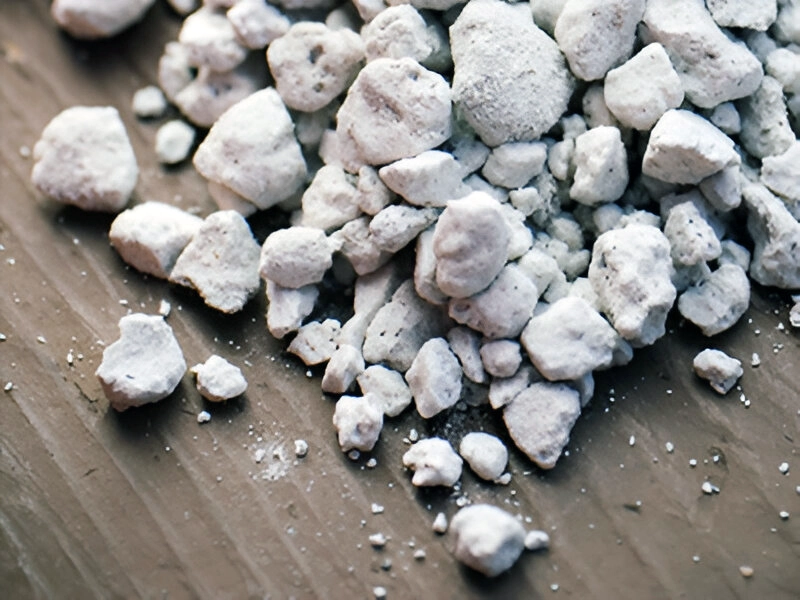Perlite is a naturally occurring volcanic glass formed when lava with high water content cools rapidly. What sets perlite apart from other volcanic materials is its ability to expand significantly when heated to around 850–900°C. At this temperature, the trapped water within the perlite vaporizes and causes the material to expand up to 20 times its original volume, resulting in a lightweight, porous structure with excellent insulating and absorbent properties.
Expanded perlite is widely used across various industries due to its low density, thermal insulation, soundproofing capabilities, and chemical stability. One of its most common uses is in the construction industry, where it serves as a lightweight aggregate in plaster, concrete, mortar, and insulation panels. It helps reduce the overall weight of building materials while enhancing thermal and acoustic insulation, fire resistance, and workability.
In horticulture and agriculture, perlite is prized for its ability to improve soil aeration and drainage. It is often mixed with soil or growing mediums to prevent compaction, retain moisture, and promote healthy root development. Hydroponic systems and greenhouses also utilize perlite as a growing medium due to its inert nature and sterile composition, which help prevent disease and pest issues.
The industrial sector uses perlite as a filtration aid in the production of beverages, pharmaceuticals, and chemicals. Thanks to its porous structure, it acts as an effective filter medium for removing impurities from liquids such as beer, wine, juices, and oils. Additionally, perlite is used in cryogenic insulation systems due to its ability to resist extremely low temperatures while maintaining its insulating performance.
Perlite is also found in consumer products, including lightweight fillers in paints, plastics, and rubber, as well as in personal care items like exfoliants and cosmetics. Its versatility, non-toxic nature, and affordability make it a popular choice for a wide range of applications.

Environmentally, perlite is considered a sustainable resource. It is abundant, requires minimal processing, and is fully recyclable. Moreover, its use in energy-saving building materials and water-efficient horticultural practices contributes to more sustainable development practices.
In summary, perlite is a highly adaptable and eco-friendly mineral that finds use in construction, horticulture, industrial processes, and consumer goods. Its unique ability to expand and form a lightweight, porous structure makes it a valuable material wherever insulation, filtration, or lightweight aggregates are needed.
Perlite is an amorphous volcanic glass that has a relatively high water content, typically formed by the hydration of obsidian. In the construction and manufacturing fields, it is used in lightweight plasters and mortars, insulation and ceiling tiles. In horticulture, perlite can be used as a soil amendment or alone as a medium for hydroponics or for starting cuttings. When used as an amendment, it has high permeability / low water retention and helps prevent soil compaction

| Oxide | Al2O3 | Fe2O3 | SiO2 | Na2O | K2O | CaO | L.O.I | DENSITY (GR/CM) |
|---|---|---|---|---|---|---|---|---|
| % | 10 - 14 | 0.5 - 2.0 | 72 - 76 | 2.5 - 5.0 | 2.5 - 5.0 | 0.5 - 2.0 | 1.0 - 3.0 | 0.05 |